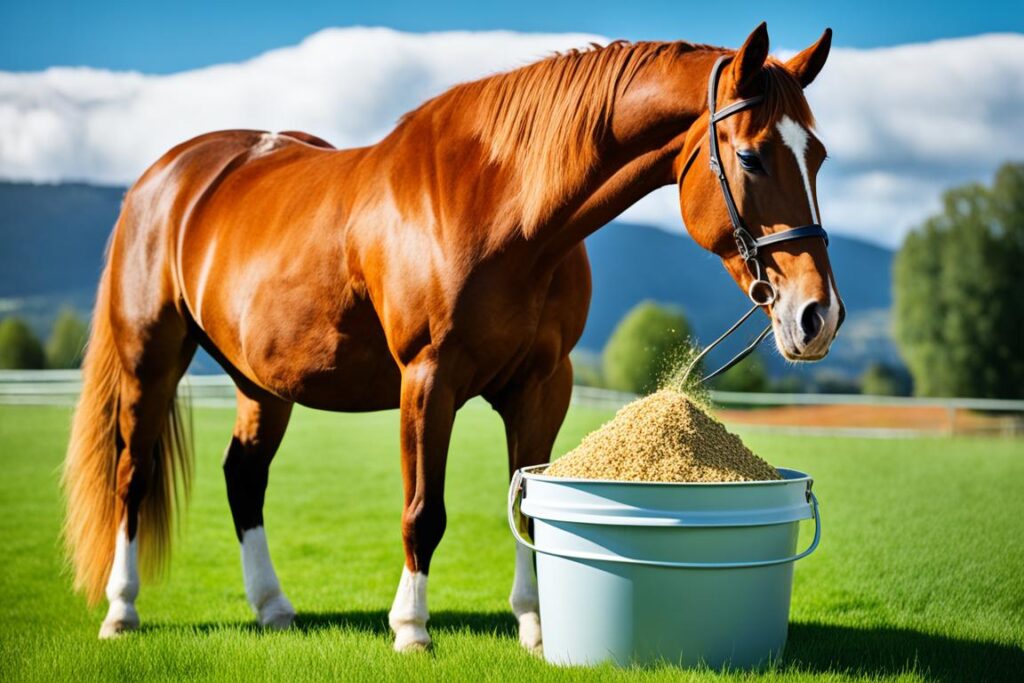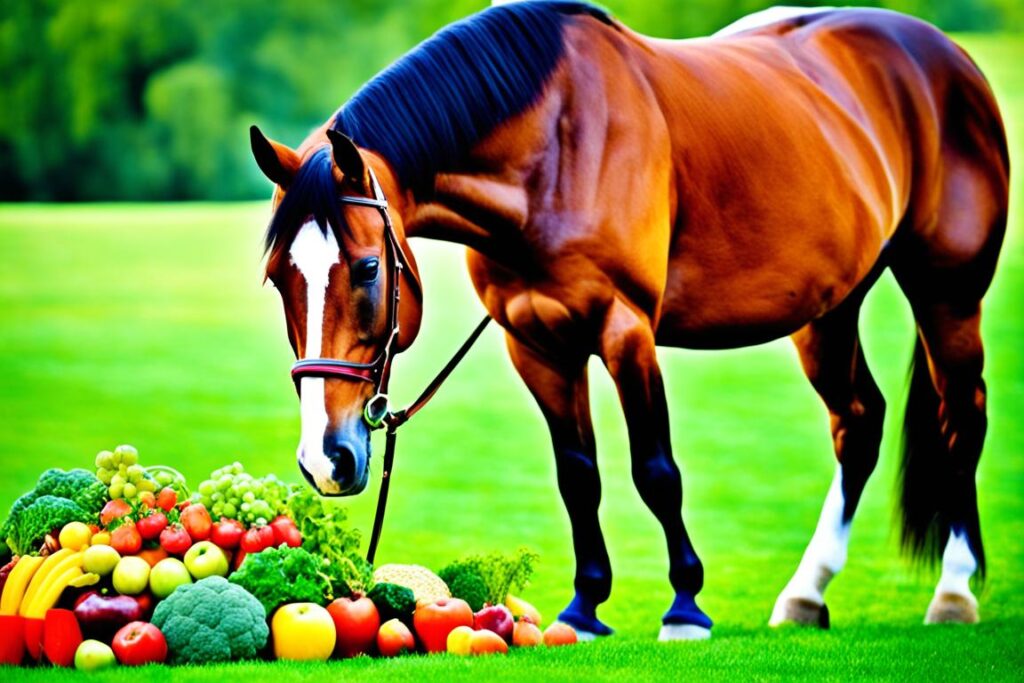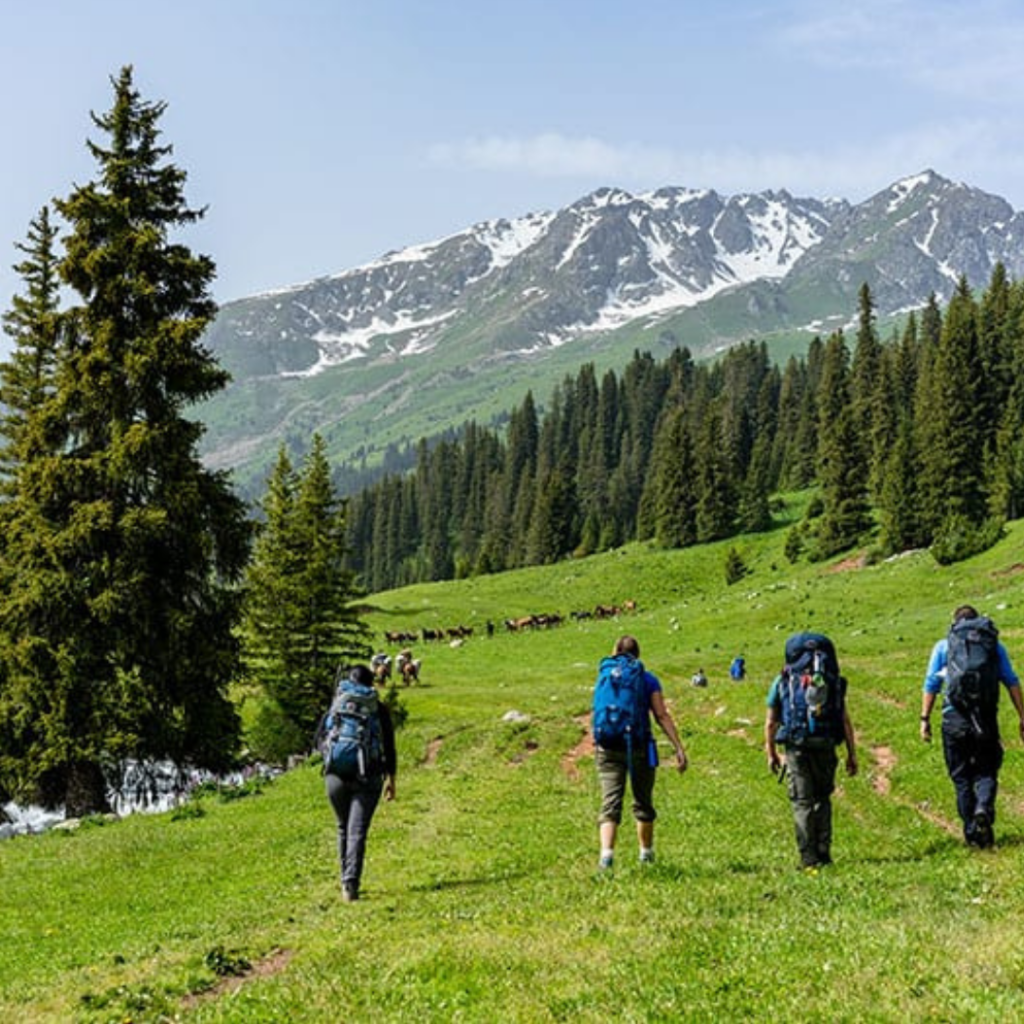Feeding your horse right is essential for its health and well-being. A proper diet includes key nutrients like carbs, proteins, fats, vitamins, minerals, and water. It’s vital not to overlook any of these, as it can cause health problems.
We will cover the fundamentals of horse nutrition. This guide will help you create a diet that’s both healthy and balanced for your horse.
Key Takeaways:
- Understanding your horse’s nutritional needs is essential for their overall health and well-being.
- Proper horse nutrition involves providing a balanced diet of carbohydrates, proteins, fats, vitamins, minerals, and water.
- Ensure your horse’s diet includes good quality hay or pasture as a primary source of roughage.
- Supplement the diet with grains or horse supplements if necessary, but the majority of calories should come from roughage.
- Regularly monitor your horse’s body condition and adjust their diet accordingly to maintain a healthy weight.
Basic Nutrients for Horses
Understanding the basic nutrients horses need is vital for their health. They require carbohydrates, proteins, fats, vitamins, minerals, and water for a balanced diet.
Carbohydrates are key, giving horses the energy they need. Roughage like hay and grass provides long-chain sugars. These are slowly digested, offering steady energy.
Proteins help build tissues and support the immune system. Horses get protein from legumes and quality grasses.
Fats offer an energy boost, great for active or underweight horses. Adding fat spares volume in their diet. Vegetable oils and rice bran are good fat sources.
Vitamins are vital for health. While grazing supplies most, some, like vitamin E, may need to be added. Limited grazing or extensive grain diets require extra vitamins.
Minerals are crucial too, ensuring proper bodily function. Horses need various minerals, which are found in forage and supplements.
Water is the most essential nutrient. It aids digestion and regulates body temperature. Horses must have clean water available at all times.
Providing the right diet is key for a horse’s health and performance. Work with a vet or nutritionist for a feeding plan that fits your horse’s needs.
With the basics of nutrition covered, it’s time to discuss Feeding Guidelines for Horses next.

Feeding Guidelines for Horses
Feeding your horse right is critical for its health. You must meet their dietary needs and consider what’s best for them. A balanced diet is key to keeping them healthy and happy.
Horses must eat a lot of roughage like hay or grass. This kind of food helps keep their digestive system working well. It also lowers the chances of them getting colic.
Grain can be a part of the diet, but not the main part. Most of what horses eat should be roughage. When adding grain, choose what fits their health and energy needs best.
It’s vital to feed your horse at the same times every day. This keeps their digestive system in check and helps avoid stomach problems. Always make sure your horse is at a healthy weight by watching what you feed them.
Buy Horse Supplements and Nutrition from Mad Barn, Purinamills, platinumperformance



